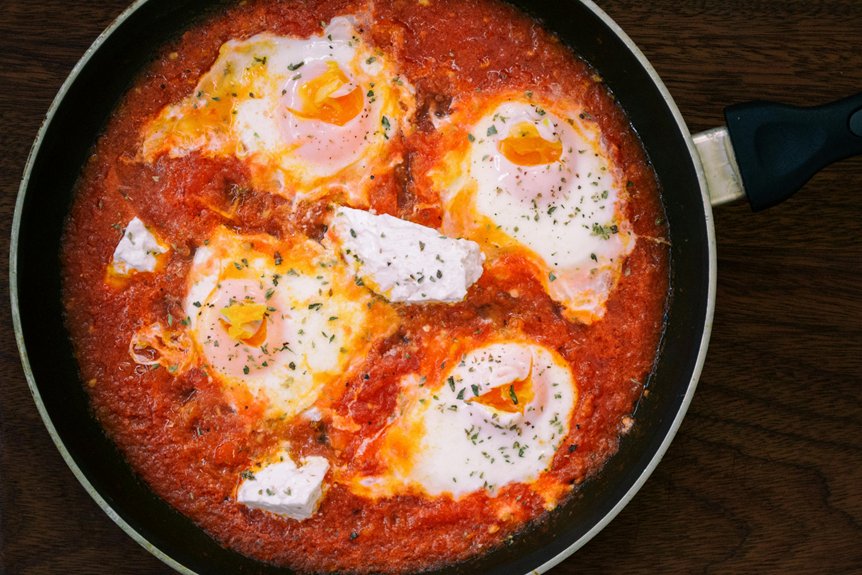
Imagine drizzling a rich, golden-green liquid over your salad, instantly elevating its flavor. You might wonder if extra virgin olive oil can seamlessly replace regular olive oil in all your favorite recipes. While it brings a robust taste and numerous health benefits, the choice between the two oils isn’t always straightforward. Understanding their differences can make all the difference in your cooking results. So, what should you consider when swapping these oils?
Understanding the Differences Between Extra Virgin and Regular Olive Oil
When you’re choosing between extra virgin olive oil and regular olive oil, understanding their differences can enhance your cooking experience. Extra virgin olive oil is made from the first cold pressing of olives, ensuring it retains more flavor, nutrients, and antioxidants. It’s unrefined and has a lower acidity level, which contributes to its high-quality status. Regular olive oil, on the other hand, often blends refined oils, stripping away some of the natural taste and health benefits. While both oils can be used for cooking, extra virgin is ideal for dressings and drizzling, allowing you to savor its rich taste. Regular olive oil suits high-heat cooking, but knowing these distinctions empowers you to choose wisely for each culinary adventure. Additionally, high polyphenol content in extra virgin olive oil provides enhanced health benefits that regular olive oil may lack.
Flavor Profiles: How Each Oil Impacts Your Dishes
Although both extra virgin olive oil and regular olive oil can enhance your dishes, their distinct flavor profiles can greatly impact your cooking outcomes. Here’s how each oil can alter your culinary experience:
- Extra Virgin Olive Oil: It offers a rich, fruity, and sometimes peppery flavor, perfect for drizzling on salads or finishing dishes.
- Regular Olive Oil: It has a milder taste, making it ideal for sautéing and frying where you don’t want the oil to overpower other ingredients.
- Scent and Aroma: Extra virgin oil has a more pronounced aroma, which can elevate the sensory experience of your meal.
Choosing the right oil based on these profiles can free your creativity in the kitchen, allowing your dishes to shine.
Nutritional Benefits of Extra Virgin Olive Oil
Extra virgin olive oil is a powerhouse of nutritional benefits that can enhance your overall health. Packed with antioxidants, it helps combat oxidative stress, promoting healthier cells. The monounsaturated fats in this oil support heart health by reducing bad cholesterol levels, making it a smart choice for your diet. Plus, it’s rich in anti-inflammatory properties, which can help alleviate chronic inflammation and related diseases. By incorporating extra virgin olive oil into your meals, you’re not just adding flavor; you’re also fueling your body with essential nutrients. Its vitamin E content supports skin health, while its polyphenols can boost brain function. Embracing this oil can lead you toward a more vibrant, liberated lifestyle. Why not make the switch today?
When to Use Extra Virgin Olive Oil in Cooking
Incorporating extra virgin olive oil into your cooking can elevate your dishes while providing numerous health benefits. It’s perfect for certain culinary situations where its rich flavor and high-quality nutrients shine. Consider using it in the following ways:
- Dressings and Marinades: Drizzle it over salads or mix it with herbs for a vibrant marinade.
- Finishing Touch: Add it to dishes right before serving to enhance the flavor.
- Low-Heat Cooking: Use it for sautéing vegetables or cooking eggs at low temperatures to maintain its benefits.
Substituting Extra Virgin Olive Oil in Recipes
When you’re cooking and find yourself short on extra virgin olive oil, you might wonder how to make a suitable substitution without sacrificing flavor or health benefits. You can easily swap in regular olive oil, which has a milder taste and can handle higher cooking temperatures. If you’re looking for a more robust flavor, consider avocado oil or nut oils like walnut or hazelnut; they add depth to your dishes. For dressings or dips, try using grape seed oil or a blend of canola and sesame oil. Just remember, each oil brings its unique characteristics, so adjust your recipe accordingly. Experiment and enjoy the liberation of creativity in your cooking!
Tips for Cooking With Extra Virgin Olive Oil
How can you make the most of extra virgin olive oil in your cooking? Here are some practical tips to elevate your dishes:
- Use it as a finishing oil: Drizzle extra virgin olive oil over salads, grilled veggies, or pasta just before serving to enhance flavor.
- Control the heat: While it has a higher smoke point than many oils, keep the heat medium to avoid losing its health benefits and taste.
- Experiment with flavors: Extra virgin olive oil comes in various flavor profiles. Try different varieties to find the perfect match for your dish.
Common Misconceptions About Olive Oil Types
What do you really know about the differences between extra virgin olive oil and regular olive oil? Many believe they’re interchangeable, but that’s a misconception. Extra virgin olive oil is made from pure, cold-pressed olives, meaning it retains more nutrients and flavor. Regular olive oil often blends refined oil with a bit of virgin oil, diluting its quality and taste. Some think the price difference isn’t worth it, but investing in extra virgin can elevate your dishes considerably.
Another myth is that all olive oils have the same smoke point. In reality, extra virgin has a lower smoke point, making it better for drizzling or dressing rather than frying. Understanding these differences empowers you to make informed culinary choices!





